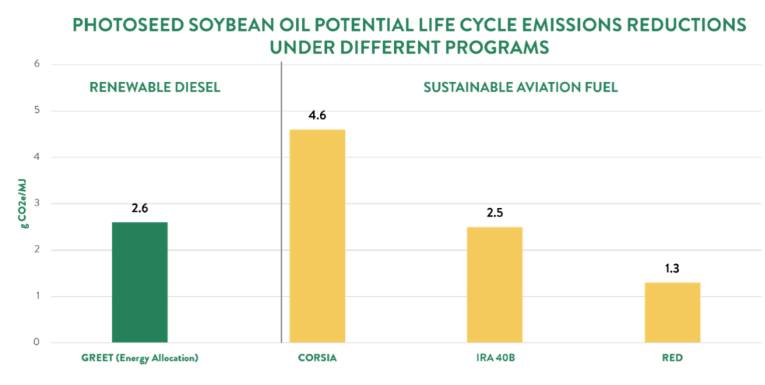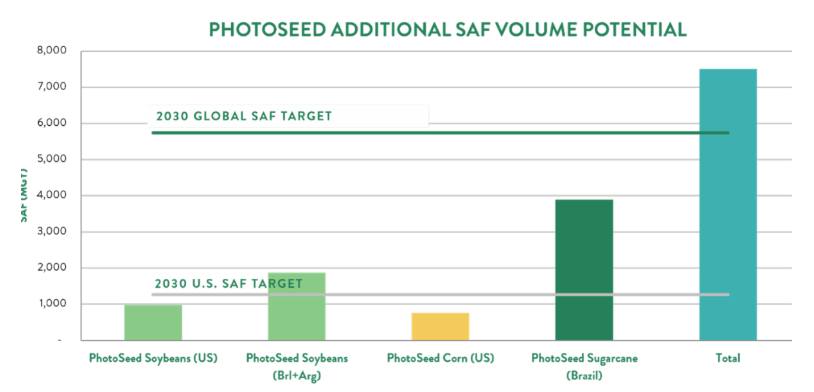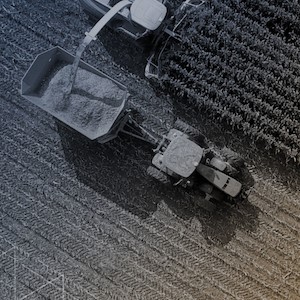ZeaKal’s PhotoSeed Technology Validated as First Sustainability-Embedded Trait
ZeaKal has announced that PhotoSeed has been validated as the first sustainability-embedded trait technology for agriculture. PhotoSeed enhances photosynthetic capacity, increasing soybean oil by 15% and protein by one point without compromising yield or requiring additional inputs. The technology is projected to expand the volume of sustainable aviation fuel (SAF) production by approximately one billion additional gallons on existing U.S. soybean acreage.
Foxley, LLC conducted an independent analysis of PhotoSeed’s impact on the carbon intensity (CI) score of sustainable aviation fuel (SAF) from soybean oil according to multiple global standards and programs. The data is also being reviewed by SCS Global Services, a leader in the field of sustainability standards and third-party certification. The modelling shows that PhotoSeed can reduce SAF CI scores by up to 4.6 points (grams of carbon dioxide equivalent per megajoule). This comes as U.S. farmers seek new ways to compete in the global commodity market.

Soybeans, the primary source of oil and protein for food and fuel, currently occupies 87.5 million acres in the U.S. PhotoSeed soy can create an additional 13 million acres’ worth of oil production while improving protein content in the meal co-product for animal feed.
Han Chen, co-founder and CEO of ZeaKal, said, “At a time when the cost and scale for renewable fuels production still falls short of petrochemicals, we can leverage plant genetics to capture carbon and expand the volume of global oil production without needing new land or infrastructure. ZeaKal’s genetics and agricultural partnerships offer the energy industry economically feasible feedstocks with improved CI features in the production of SAF and other renewable fuels.”
Potential PhotoSeed Oil Volume Flies Past Global Decarbonization Targets
Recent bipartisan legislative efforts bolster the U.S. government’s Sustainable Aviation Fuel Grand Challenge, which aims to produce three billion gallons of SAF annually and reduce emissions by five percent by 2030. The Farm to Fly Act, introduced in January 2024 by a group of bipartisan senators, seeks to accelerate SAF production by clarifying SAF eligibility within USDA Bio-Energy Programs, promoting collaboration across USDA agencies, establishing a common SAF definition, and codifying greenhouse gas measurement standards aligned with Treasury Department and IRS guidance. PhotoSeed can be the catalyst to achieve these goals efficiently and cost-effectively for farmers and buyers alike.
Gordon Denny, Board Advisor for ZeaKal, said, “PhotoSeed offers a win-win-win for growers, energy, and agriculture and puts the food vs fuel debate to rest. As key contributors to our national security and economy, American farmers can differentiate from global commodity markets while qualifying for CI tax incentives and value-added pricing for their crops. With these incentives, why would anyone grow another soybean?”
Over the past several years, ZeaKal has built a harmonized supply chain for PhotoSeed soy, which includes Gro Alliance, Nutrien Ag Solutions, and Perdue AgriBusiness. The collaboration enables improved oil and protein production with improved sustainability features for the food and agriculture industry. With growing demand from energy, the initial three-million-acre East Coast footprint is an attractive source for low CI feedstock. PhotoSeed soybeans will be available for the 2026 growing season.
PhotoSeed’s verification as a technology pathway for reducing CI also opens opportunities across the company’s other crop programs. For ZeaKal’s key crop programs, the company forecasts that the global volume of SAF production could expand to 7.5 billion gallons per year.







